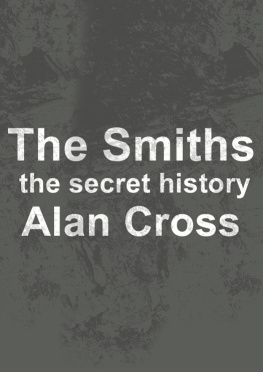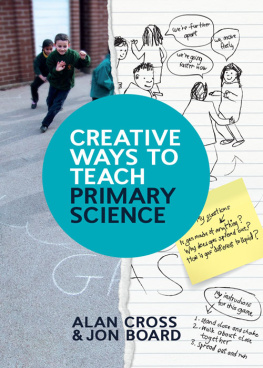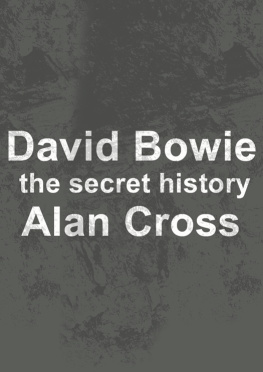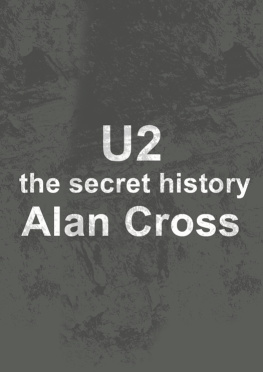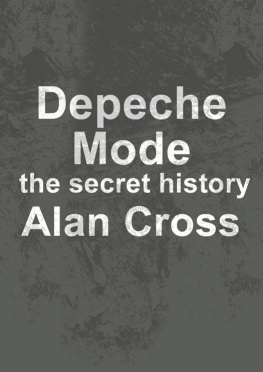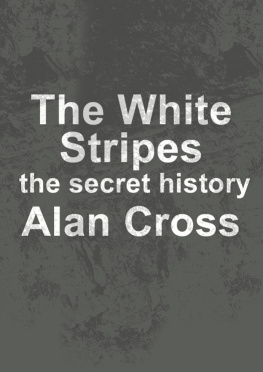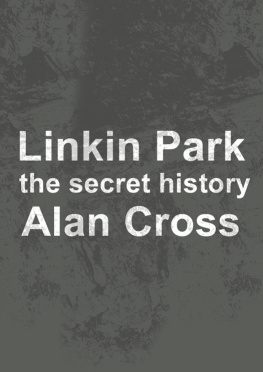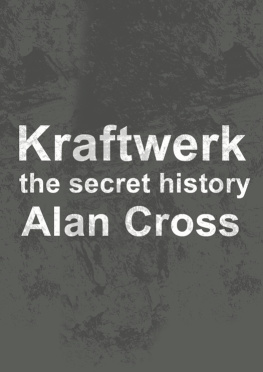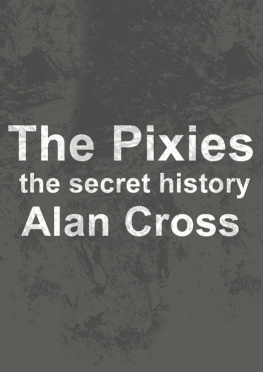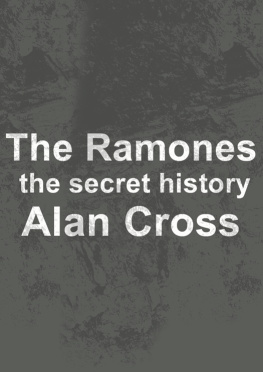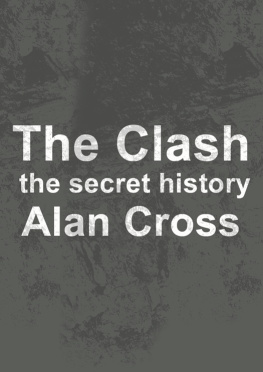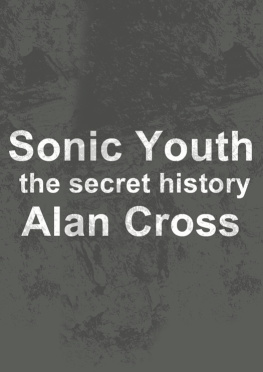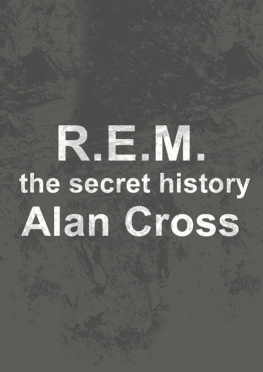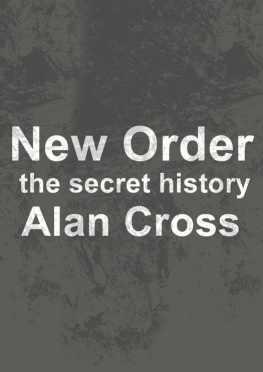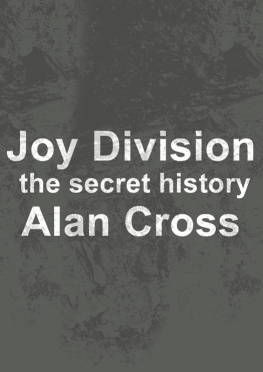Alan Cross - The Smiths: the secret history
Here you can read online Alan Cross - The Smiths: the secret history full text of the book (entire story) in english for free. Download pdf and epub, get meaning, cover and reviews about this ebook. year: 2012, publisher: HarperCollins Canada, genre: Non-fiction. Description of the work, (preface) as well as reviews are available. Best literature library LitArk.com created for fans of good reading and offers a wide selection of genres:
Romance novel
Science fiction
Adventure
Detective
Science
History
Home and family
Prose
Art
Politics
Computer
Non-fiction
Religion
Business
Children
Humor
Choose a favorite category and find really read worthwhile books. Enjoy immersion in the world of imagination, feel the emotions of the characters or learn something new for yourself, make an fascinating discovery.
- Book:The Smiths: the secret history
- Author:
- Publisher:HarperCollins Canada
- Genre:
- Year:2012
- Rating:5 / 5
- Favourites:Add to favourites
- Your mark:
- 100
- 1
- 2
- 3
- 4
- 5
The Smiths: the secret history: summary, description and annotation
We offer to read an annotation, description, summary or preface (depends on what the author of the book "The Smiths: the secret history" wrote himself). If you haven't found the necessary information about the book — write in the comments, we will try to find it.
Alan Cross is the preeminent chronicler of popular music.
Here he provides a history of The Smiths, the definitive British indie band of the 1980s.
This look at the band -- Those Charming Men -- is adapted from the audiobook of the same name.
The Smiths: the secret history — read online for free the complete book (whole text) full work
Below is the text of the book, divided by pages. System saving the place of the last page read, allows you to conveniently read the book "The Smiths: the secret history" online for free, without having to search again every time where you left off. Put a bookmark, and you can go to the page where you finished reading at any time.
Font size:
Interval:
Bookmark:
Once upon a time, just about every rock and roll band on the planet seemed to be suffering from an overdose of testosterone. The macho swagger of the guitar gods, the Robert Plant wannabes, the power-chord arena-rock anthems, the sex-drugs-and-rock-and-roll mentalitythese were standard issue for thousands of performers from the late 60s to the early 80s. The only real competition came from the all-synthesizer techno-pop outfits that began in the late 70s. With their sense of theatrics, makeup and often effeminate/androgynous/bisexual personas, some of these groups appeared to have traded their guitars for a few injections of estrogen.
This is the world that the Smiths entered. Neither the unbridled machismo of the rock gods nor the otherworldly wash of synthesizers, the Smiths approach was unique. Morrissey, the Smiths ultra-charismatic, sexually ambiguous front man, pursued a lyrical path of self-absorption, self-loathing, selfishness and general anguish that somehow made him one of the most-adored figures of the 80s. Behind him was a basic but solid band led by guitarist Johnny Marr. With an exquisitely tasteful playing style that was new and fresh, Marr ensured that the Smiths didnt fit into any existing place in the rock and roll order. Worshipped and scorned in equal amounts, the Smiths, during their short four-year lifespan, laid some of the essential groundwork for much of the alternative rock that followed.
Assuming the role of lyricist, Morrissey bombarded Duffy with compositions with titles like (I Think) Im Ready for the Electric Chair until he agreed to give Morrissey a shot as the bands singer. The Nosebleeds played exactly two gigs before breaking up in June 1978. For the next few years, Morrissey did little except collect unemployment, attend concerts and write letters to the music papers.
Growing up, Marr had showed promise as a soccer player, but once he discovered musicespecially the guitar playing of Rory Gallagher, Neil Young and Nils Lofgrenit became his obsession. After playing in a series of bands (Sister Ray, Paris Valentinos, White Dice and the funky Freaky Party), Marr was introduced to Morrissey by Billy Duffy, who thought the two of them might make a nice songwriting team. After a meeting in Morrisseys bedroomMorrissey immediately fell in love with his guitar styleMarr set about writing music to Morrisseys lyrics. Within a month, they were rehearsing together, and they made several eight-track demos at Decibel Studios in Manchester that summer.
With new drummer Mike Joyce (born June 1, 1963, and ex of a band called Victim) and a bassist named Dale (an engineer from those first demo sessions), the Smiths made their first live appearance on October 4, 1982, at the Ritz in Manchester. By December, Dale was replaced by Andrew Rourke (born January 17, 1964), a former bandmate of Marrs in the Paris Valentinos. With a few weeks rehearsal time, the Smiths headlined their first gig on January 6, 1983, performing at Manhattan Sound in Manchester accompanied by a gay go-go dancer hired by their new manager, Joe Moss.
After the Smiths played their first London gig on March 23, a very persuasive and insistent Johnny Marr convinced Geoff Travis of Rough Trade Records to listen to a demo of Hand in Glove. After being cornered in the kitchen at the labels offices, Travis was forced to concede that the song had its good points and agreed to it as a one-off single. Hand in Glove (backed with a version of Handsome Devil recorded live at the Hacienda) appeared in the stores in May 1983.
Although the single failed to make much of a dent on the mainstream pop charts (it topped the indie chart), the Smiths were nevertheless starting to generate a buzz, thanks in large part to Morrisseys powerful stage presence. Openly displaying his influences and obsessions (Patti Smith, the New York Dolls, 50s singer Johnny Ray, writer Oscar Wilde) and often presented with enough gladioli to smother a florist, Morrissey made sure that Smiths gigs were intimate communions with fans. Word spread on this simple pop band who looked sounded nothing like the keyboard-driven and foppish Depeche Mode or the computer-powered and mechanical Human League. Late that spring, Travis decided that hed better grab the band while he could, offering the biggest advance in the labels history. This swayed the band from signing with their hometown Factory Records, and the Smiths agreed to a long-term contract with Rough Trade. It was a decision theyd later regret.
Despite the confusion and controversy among fans (or perhaps because of it), Smiths shows became more and more crowded.
Following a third single (What Difference Does It Make? released on January 20, 1984), the Smiths released a self-titled debut album on February 20, 1984. Recorded over a period of just two weeks with producer John Porter, the album didnt please the Smiths, who believed that they could have created something better with just a little more time and money. Many of the tracks had been hurriedly rerecorded in frantic all-night sessions towards the end of the second week.
Fans and critics didnt seem to notice any of the shortcomings that obsessed the band. On the contrary: the rough, stark minimalism of the arrangements combined with Morrisseys wavering, almost crooning vocals resulted in a record that sounded like no other. Morrisseys ability to capture the bittersweet agonies of life and love in song far outdistanced the attempts of his contemporaries. His Bowie-esque flirtation with homosexual imagery didnt seem to hurt, either. On the contrary, any gay references only seemed to reinforce the mystique of this new group. Meanwhile, the ringing and jangling of Johnny Marrs guitar propelled the songs forward with a fresh playing style that didnt seem rooted in any definable influence. Praise by critics and purchases by an ever-growing cadre of worshippers pushed The Smiths to number two in the UK.
It now seems remarkable that the Smiths werent too keen on that song. Had it not been necessary to fill space on Hatful of Hollow, the song might have never been released.
the album received generally good reviews. However, the album failed to provide any kind of major hit single. The best Meat could muster was the number 23 showing of The Boy with the Thorn in His Side in October. Those who listened to the album were entertained by stories of sadistic schoolteachers (The Headmasters Ritual) and child abusers (Barbarism Begins at Home) as well as anti-Thatcherite tirades.
Morrissey was also becoming more outspoken during interviews. Holding forth on everything from politics to sex to the evils of meat, he was not averse to bad-mouthing some of his musical contemporaries (Robert Smith of the Cure was a frequent target). While his forthright and often contrary opinions endeared him to the Smiths faithful and turned the Smiths into media sensationsMorrissey was always good for an outrageous quotehe did not make any new friends in the music industry.
In the interim, the group hired Craig Gannon, a rhythm guitarist ex of Aztec Camera, on June 21, 1986. Rourke, eventually forgiven for his chemical indiscretions, returned later in the year, and the Smiths became a quintet.
Just as they were on the verge of becoming a major international act, the group faced several other challenges. Fans accustomed to seeing their heroes in clubs were becoming alarmed that their group were now taking on the trappings of stadium rockers. Morrissey was still feeling the fallout from his pointed criticisms of Live Aid the previous summer. Management troubles had plagued the band through 1985, resulting in a somewhat poisonous atmosphere as Morrissey and Marr began to renegotiate their contract with Rough Trade, though EMI had reportedly offered a deal. And the band could not decide whether the new album should be recorded in England or in New York. Delays stretched from weeks to months.
Font size:
Interval:
Bookmark:
Similar books «The Smiths: the secret history»
Look at similar books to The Smiths: the secret history. We have selected literature similar in name and meaning in the hope of providing readers with more options to find new, interesting, not yet read works.
Discussion, reviews of the book The Smiths: the secret history and just readers' own opinions. Leave your comments, write what you think about the work, its meaning or the main characters. Specify what exactly you liked and what you didn't like, and why you think so.

